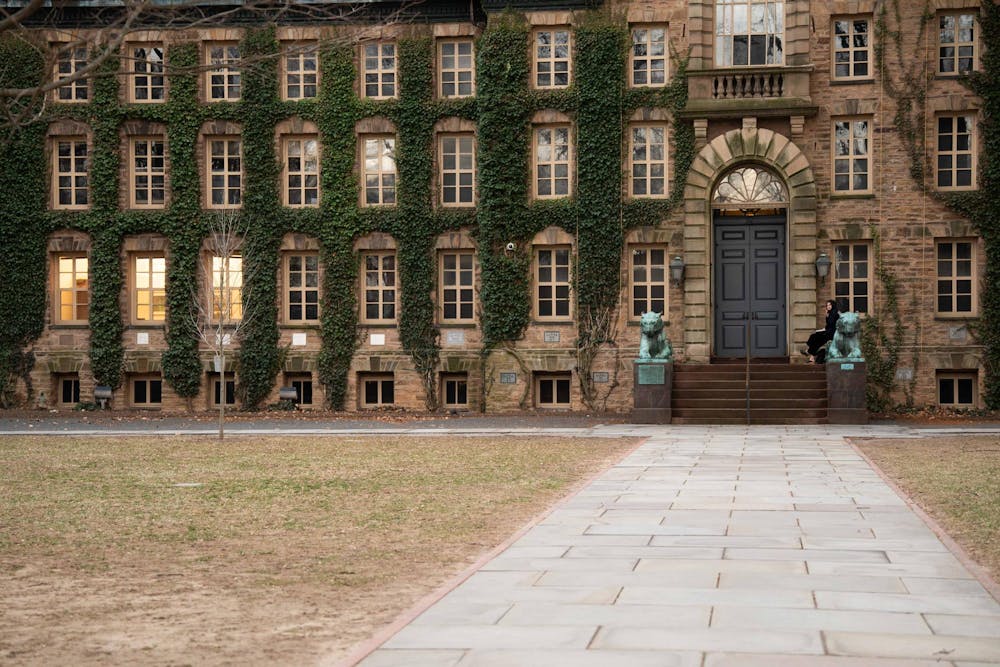University President Christopher Eisgruber ’83 urged incoming students to stand up for research excellence and the independence of universities in an address to the Class of 2029 at Opening Exercises on Sunday.
“Universities must be independent sources of data, theory, and argument,” he said. “Faculty members and students should have the incentive, the responsibility, and the freedom to pursue scholarly excellence even when the arguments they generate might anger or displease powerful people.”
“That independence gives universities a unique and essential role within a free and democratic republic. It also guarantees that they will be controversial,” he added.
Eisgruber has sought to defend the independence of universities from extraordinary pressure from the Trump administration in the past six months and is the author of a forthcoming book arguing that “colleges are getting free speech on campuses right.”
A theme of academic rigor was evident from the beginning of Eisgruber’s remarks. He began by mentioning the 2029 pre-read, “On the Fringe: Where Science Meets Pseudoscience” by Dean of the College Michael Gordin. The pre-read introduces incoming freshmen to research by members of the University community.
“There is no simple test or rule that can distinguish a scientific argument from a non-scientific one,” Eisgruber said in reflection of the book’s primary discussion on distinguishing “fact from fiction, knowledge from opinion, and science from pseudoscience.”
Rather, Eisgruber said, arguments in a university context should be weighed by the standards of their respective academic field rather than parties like the public.
“When Princeton decides whether to hire or promote professors, we evaluate their scholarship by reference to the standards of their disciplines, not by whether their work is popular with the public, government officials, or powerful interest groups,” he said. “We expect faculty members and students to be loyal to the truth, not to the preferences of any party, official, agenda, or ideological platform.”

At the same time, he encouraged incoming students to engage with their professors — about their courses, about University policy, and about his address.
“They have no obligation to agree with it, and I find they often disagree with what I say,” Eisgruber said. “They have no obligation to agree with it, and neither do you.”
Eisgruber described disagreement as “desirable and beneficial,” referencing emeritus physics professor and 2019 Nobel Prize recipient Jim Peebles’ belief that “new generations of scientists replace older theories with better ones.”
He also highlighted honesty as another pillar in Princeton’s scholarly community, referencing the undergraduate Honor Code — historically strictly enforced — alongside a swipe at generative AI.

“Trust that I don’t need to explain why honesty is better than dishonesty, or why it is wrong to steal other people’s ideas or claim credit for words that are not our own — even words generated by a machine,” he said.
Eisgruber ended his remarks with a classic “Welcome to Princeton!” as the Class of 2029 closed out a long orientation week.
Cynthia Torres is an associate News Editor for the ‘Prince.’
Please send corrections to corrections[at]dailyprincetonian.com.








